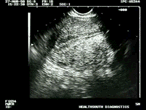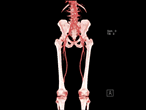Our tests include everything you would expect from a first class annual check-up, plus a unique set of diagnostic studies available nowhere else, individualized to you based on your own personal situation.
Complete Cardiovascular Work-up
- Stress Echocardiogram An echocardiogram is a test in which ultrasound is used to examine the heart.
- Carotid Artery Ultrasound A test that shows the carotid arteries (vessels in the neck that provide blood flow to the brain), as well as how much blood flows and how fast it travels through them.
- Electrocardiogram, Baseline An electrocardiogram (ECG/EKG) is an electrical recording of the heart and is used in the investigation of heart disease.
Ultrasound Studies
- Gallbladder Ultrasound An abdominal ultrasound uses reflected sound waves to produce a picture of the organs and other structures in the upper abdomen.
- For Women: Transvaginal Examination of the Uterus and Ovaries A method of imaging the genital tract in women that is used to check for endometrial and ovarian cancer. The ultrasound machine sends out high-frequency sound waves, which bounce off body structures to create a picture.

CT (Computerized Tomography) Imaging
- CT of the Chest Computed tomography of the chest uses special equipment to obtain multiple cross-sectional images of the organs and tissues of the chest. Used for detection of lung cancer.
- CT of the Abdomen Computed tomography of the abdomen is particularly useful because it can show several types of tissue with great clarity, including organs like the liver, spleen, pancreas and kidneys.
- Calcium Scoring A special X-ray called a computed tomography (CT) scan to find the buildup of calcium on the walls of the arteries of the heart (coronary arteries), a significant risk factor for heart disease.
- Virtual Colonoscopy Non-invasive X-rays and computers are used to produce two- and three- dimensional images of the colon (large intestine) from the lowest part, the rectum, all the way to the lower end of the small intestine. The procedure is used to diagnose colon and bowel disease, including polyps, diverticulosis, and cancer.

Body Composition Analysis (Assess Body Fat)
The technical term used to describe the different components that, when taken together, make up a person's body weight.
Chest X-Ray
A simple X-ray useful in detecting lung cancers and other abnormalities of the chest.
Mammogram
Screening X-rays for the early detection of breast cancer in women.
Bone Density
A non-invasive measurement of bone thickness to screen for bone thinning or osteoporosis.
Laboratory Tests
- Cholesterol Screening
- Liver Function Tests
- Complete Chemistry Profile
- Complete Blood Count
- Urinalysis
- Thyroid Studies (TSH)
- HbA1C (early diabetes detection)
- PSA (prostate cancer)
- CA125 (ovarian cancer)
- Ferritin (iron stores and a risk factor for diabetes and cancers of the liver and pancreas)
- C-Reactive Protein-High Sensitivity ("vascular inflammation test", a risk factor for heart disease and stroke)
- Homocysteine (another risk factor for heart disease or stroke)
Comprehensive Physical Examination
All of the above testing is complemented with a thorough physical examination by your evaluating physician, including time to discuss issues that are important to you and your health.


















